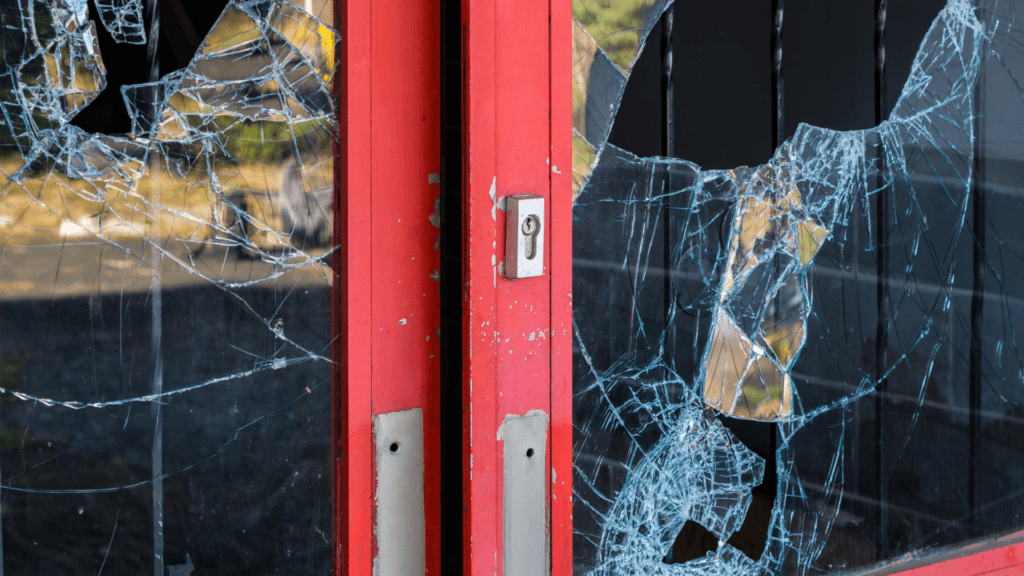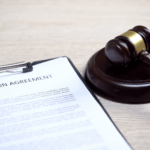
Property damage is often an unfortunate reality that business owners have to deal with throughout their time of owning commercial property. State laws vary regarding the requirements and rights business owners have when the property is damaged. It is, therefore, important for business owners to be aware of the applicable laws following an instance of property damage.
Texas Property Damage Laws
Insurance should provide a safety net for business owners, so when damage to a commercial property occurs there is a legally binding contract –the insurance policy– in place that provides coverage for the damage. While there are many causes of property damage, most often, in Texas, it is due to some form of natural disaster or weather-related events such as a hurricane or hailstorm. Other common causes are theft and/or vandalism. Regardless of how the property damage occurred, Texas law prohibits an insurance company from using unfair claim settlement tactics. Under the Texas Insurance Code, these unfair practices include: misrepresenting facts or policy terms, delaying payment on a valid claim; failing to settle a claim within a reasonable time; underpaying or undervaluing a claim; and denying a claim without a reasonable explanation. Fortunately, there are common law and statutory protections to policyholders to hold insurance companies accountable and help to ensure insurers uphold their obligations under the terms of the policy. However, policyholders must also be aware of time limitations set by their policy and/or Texas law, so they don’t lose the right to bring legal action should an insurance company use one of these bad faith acts.
Texas Common Law and Property Damage
Insurance companies owe a wide range of duties to their policyholders in the Lone Star State. Insurance policies are contracts of adhesion, which is a contract drafted by one party (in this case the insurer) and signed by another party (the policyholder). Due to the insurer has a much stronger bargaining power, Texas law typically interprets insurance policies in favor of the policyholder and will penalize insurance providers for bad faith actions. However, both parties are subject to the policy terms and must perform their obligations as delineated. In the event an insurance company violates the policy terms, they can be held liable for breach of contract. In addition to insurance providers having to adhere to the terms of the contract, they also owe a duty of good faith and fair dealing—in other words, under this common law implied covenant, they must treat policyholders reasonably, fairly, and in good faith. Once a policyholder files a claim in Texas, the insurer is required to follow specific regulations to investigate, process, and handle the claim. For example, the insurance provider must evaluate the claim fairly to the fullest extent and not deny or delay payment of a valid claim when liability is reasonably clear. If an insurance company breaches the policy or their duties, by law they can be responsible for damages.
Texas Insurance Code and Property Damage
The Texas Insurance Code (TIC), specifically Sections 541 and 542, provides statutory protections for Texas policyholders that require insurance provides to effectuate a prompt, fair, and equitable settlement of a claim. Further, the TIC penalizes insurance providers for bad faith activities, such as failure to conduct a reasonable investigation, misrepresenting the policy, and/or making false statements of material fact. Further, TIC §542–the Texas Prompt Payment of Claims Act (TPPCA) triggers time limitations for an insurance company to respond and acknowledge the receipt of a filed claim, request documentation and begin investigating the claim, notify whether a claim has been accepted or denied, and to pay an accepted claim. If the claim is denied, the insurance company must provide a valid reason to the insured in writing. An insurance company’s failure to meet any of these requirements within the time allowed is a violation of the TPPCA and the insurance company may be responsible for additional damages, penalties such as statutory interest, and attorneys’ fees.
A violation of the TIC may also create a cause of action under the Deceptive Trade Practices Consumer Protection Act (DTPA), which provides additional protections to consumers who are victims of deceptive, improper, or illegal practices. Insurance companies that violate the TIC and DTPA may be entitled to attorneys’ fees, treble damages, and other penalties.
Property Damage Statute of Limitations in Texas
When property damage happens to a business, owners may want to file a lawsuit against their insurance provider in the event bad faith tactics have been utilized. It’s important to understand that Texas has a statute of limitations for property damage claims, no matter if the case involves real property such as the premises of a business or personal property. The term statute of limitations refers to state law placing a time limit on how long a claimant has to file a lawsuit in court.
In Texas, there is a two-year filing deadline that applies to any lawsuit seeking the repair or replacement of damaged or destroyed property. The case must be filed within two years from the day the property was damaged or destroyed. In the event the two-year deadline has passed before the injured party files suit, the insurer can file a motion to ask the court to dismiss the case. If the dismissal is granted, the plaintiff has lost the right to any legal remedy against the carrier to recover compensation for the damaged property. It is important to also be aware that policies often contain statutes of limitations that may differ from those provided under Texas law. Because of this, property owners should file suit as soon as possible to avoid a potential case dismissal.
Texas Property Damage Coverage Attorneys
Any instance of commercial property damage can cause a business to come to a screeching halt and leave owners unsure of what to do or what their legal options are. At Raizner Law, our attorneys understand the laws surrounding property damage in Texas and the options available to commercial property owners. If you need assistance with a commercial property claim, we can help. Contact our office today for more information.


